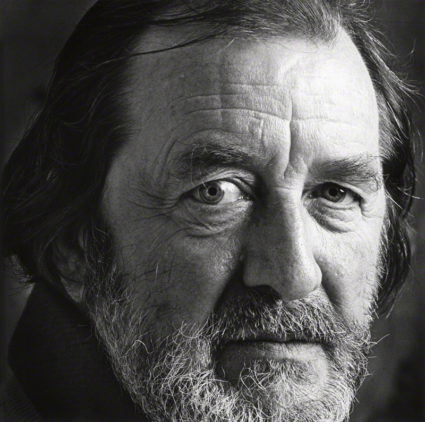Robert Bolt (Robert Oxton Bolt)

Robert Bolt was born in Sale, Cheshire. At Manchester Grammar School his affinity for Sir Thomas More first developed. He attended the University of Manchester, and, after wartime service in the RAF (1943–1946), the University of Exeter. For many years he taught English and history at Millfield School and only became a full-time writer at the age of 33 when his play The Flowering Cherry was staged in London in 1958, with Celia Johnson and Ralph Richardson. Although he was best known for his original play A Man for All Seasons – a depiction of Sir Thomas More’s clash with King Henry VIII over his divorce from Catherine of Aragon – which won awards on the stage and in its film version, most of his writing was screenplays for films or television. Robert Bolt was known for dramatic works that placed their protagonists in tension with the prevailing society. He won great renown for A Man for All Seasons, his first iteration of this theme, but he developed it in his existential script for Lawrence of Arabia (1962). In Lawrence, he succeeded where several before him had failed, at turning T. E. Lawrence’s Seven Pillars of Wisdom into a cogent screenplay by turning the entire book on its head and making it a search for the identity of its author, presenting Lawrence as a misfit both in English and Arab society.
It was at this time that Robert Bolt himself fell foul of the law, and as part of the Committee of 100 was arrested and imprisoned for protesting against nuclear proliferation. He refused to be “bound over” (i.e., to sign a declaration that he would not engage in such activities again) and was sentenced to one month in prison because of this. The producer of the Lawrence film, Sam Spiegel, persuaded Bolt to sign after he had served only two weeks. Bolt later regretted his actions, and did not speak to Spiegel again after the film was completed. Later, with Doctor Zhivago, he invested Boris Pasternak’s novel with the characteristic Bolt sense of narrative and dialogue – human, short and telling. The Bounty was Bolt’s first project after a stroke, which affected not only his movement, but his speech. In it, Fletcher Christian takes the “Lawrence” role of a man in tension with his society who in the process loses touch with his own identity. The Mission was Bolt’s final film project, and once again represented his thematic preoccupations, this time with 18th-century Jesuits in South America.
Robert Bolt’s final produced script was Political Animal, later made into the TV movie Without Warning: The James Brady Story (1991), about the attempted assassination of Ronald Reagan and the struggles of his press secretary, James Brady, to recover from a near-fatal gunshot injury he received in the process. Bolt was initially reluctant to make the film, but after meeting Brady he felt he could relate to Brady’s struggles with a cerebral injury; thus, a lot of his own experiences recovering from his stroke found their way into the script. Robert Bolt suffered a heart attack and a stroke that left him paralysed in 1979. He died aged 70, in Petersfield, Hampshire, England, following a long illness.
Born
- August, 15, 1924
- United Kingdom
- Sale, Cheshire, England
Died
- February, 21, 1995
- United Kingdom
- Petersfield, Hampshire, England



